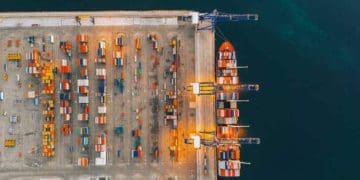In response to growing naval developments in the Indo-Pacific region and persistent global trade challenges, the United States is focusing on revitalizing key sectors within its industrial base. Shipbuilding, once a dominant industry in the U.S., now represents only 0.2 percent of the world’s gross commercial tonnage, compared to over 90 percent accounted for by Korea, Japan, and China. This shift underscores potential risks to national security and supply chain stability, prompting the need for strategic interventions.
On June 20, Hanwha Ocean and Hanwha Systems, part of a major Korean conglomerate, made a significant move by bidding to acquire Philly Shipyard in Pennsylvania. This facility is responsible for about half of the commercial Jones Act ships built in the U.S. The $100 million acquisition aims to rejuvenate the U.S. shipbuilding industry.
Despite this development, concerns persist regarding overreliance on Chinese-built ships and the risks associated with weaponized supply chains or monopolization. In response, 19 members of Congress have urged the Biden administration to take action to strengthen U.S. maritime supply chains and shipbuilding infrastructure.
The collaboration with Korean companies, which have a long history of shipbuilding bolstered by government support, is a strategic choice. Korean firms such as HD Hyundai Heavy Industries, Samsung Heavy Industries, and Hanwha Ocean are recognized leaders in the global shipbuilding sector. The rising demand for specialty tankers due to shifts in energy portfolios and supply chain volatility has further highlighted Korea’s competitive edge in this field. Investor confidence in Korean shipbuilding is growing, particularly in relation to potential U.S. exports of liquefied natural gas (LNG) and other transitional fuels after the 2024 presidential election.
The partnership also focuses on integrating advanced technologies into commercial shipping. Hanwha Ocean’s expertise in unmanned maritime systems is expected to play a role in the Philly Shipyard acquisition. Additionally, U.S.-Korean collaborations are underway to develop autonomous navigation systems, which could significantly impact global shipping and defense capabilities.
As global supply chains face increasing pressures from conflicts, climate change, and economic challenges, enhancing shipbuilding capacity through international cooperation will be vital for maintaining global trade stability and security. The acquisition of Philly Shipyard represents a step towards addressing these challenges and strengthening U.S. maritime capabilities.
Stay on top of supply chain news with The Supply Chain Report. Enhance your international trade knowledge with free tools from ADAMftd.com.
#GlobalSupplyChain #Shipbuilding #USKoreaDeal #MaritimeSecurity #SupplyChainNews















